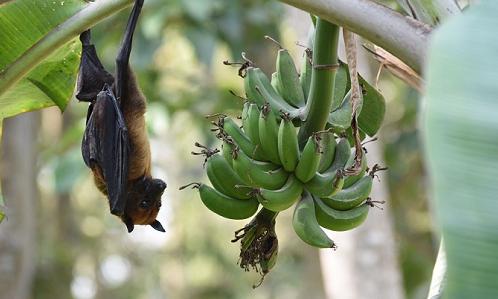An international group of scientists identify bat species with the potential to host Nipah virus. They have found, using machine learning, that more bat species in India may be reservoirs of Nipah than the only one confirmed so far. Four species of bats occur in India, two found in Kerala.
New Delhi (ISW): The recent outbreak of Nipah virus in Kerala, which follows one that occurred in 2018, has brought the focus back on bats which are known to host the virus. Using machine learning – a form of artificial intelligence (AI) – an international group of scientists has identified bat species with the potential to host Nipah virus.
Based on traits of bats to carry the virus, researchers have pointed out that more bat species in India may be reservoirs of Nipah than the only one confirmed so far.
“One of our major findings is that until now the Nipah virus presence in India was known from only one species of fruit bats – the Indian Flying Fox. However, our analysis reveals that at least 11 species of bats in India could be carriers of Nipah,” said Dr P.O. Nameer, Head, Centre for Wildlife Studies, College of Forestry, Kerala Agricultural University, and a member of the research team.
The machine learning analysis is based on already published scientific studies globally, and no samples have been actually tested for this study. Still, the findings are important from public health point of view.
“Since Nipah presence is now suspected from more species of bats, including some species of insect bats, we need detailed studies by collecting samples. Such studies would help in taking necessary precautions by people and in reducing chances of possible outbreaks in future,” added Dr Nameer.
The analysis covered 523 bat species and 48 traits such as foraging methods, diet, migration behaviours, geographic spread, reproduction as well as environmental conditions. The data included 31 bat species found in India and 11 of these species have been found to host Nipah virus in studies elsewhere. The algorithm could identify bat species already known to carry Nipah with 83% accuracy. It also identified six species in Asia, Australia, and Oceana that have traits which make them possible hosts of the virus. Four of these species also occur in India, two in Kerala.
“Our work provides a list of species to guide early surveillance and should not be taken as a definitive list of reservoirs. A series of further studies are required to triangulate on the reservoir hosts that pose a risk to humans,” researchers have cautioned in their study published in journal PLoS Neglected Tropical Diseases.
Nipah is a deadly virus that can be transmitted to humans from the body fluids of infected bats. When infected bats feed on fruits or date palms, they contaminate the fruits. Once someone gets infected, he or she can spread the virus to others. Domestic pigs have also been identified as a ‘bridging host’ in some cases.


